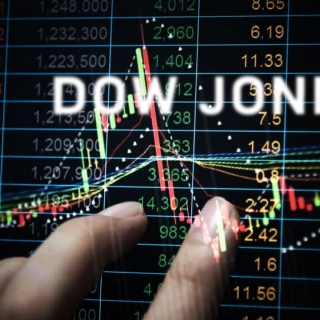


Stocks plunged on Monday as the selloff that dragged down Wall Street last week continued, with investors worried about an economic slowdown after President Donald Trump did not rule out a recession with U.S. tariffs.
The Dow Jones Industrial Average fell 423 points, or 1%. The S&P 500 fell 2.1%, and the Nasdaq Composite dropped 3.4%.
The tech-heavy Nasdaq was weighed down by declines in the "Magnificent Seven." Tesla fell 8%, Alphabet fell 4%, and MetaTrader 4 and AI darling Nvidia fell 5%.
Stocks have been under pressure as investors worry about a possible recession because of the Trump administration's tariffs. Part of the worry is that the levies could push prices higher, making it harder for the Federal Reserve to cut interest rates. In an interview that aired Sunday, Trump responded to a question on Fox News about the possibility of a recession by saying the economy was going through a "transition period."
"We're in the throes of a manufactured correction. I say manufactured because it's really based on the response to the new administration's tariff program, or at least the threat of tariffs, and what kind of impact that's going to have on the economy. Now, with people talking about a potential recession, I think that just adds to investor concerns," said Sam Stovall, chief investment strategist at CFRA Research. "We're in the middle of a typical pullback right now and we're probably going to have a mild correction before it's over, which would be nice to reset the dials on this ongoing bull market."
Last week, the S&P 500 fell 3.1% for its worst weekly performance since September. The Dow fell 2.4%, while the Nasdaq dropped 3.5%. Over the past month, the S&P 500 and Nasdaq are down 6% and 9%, respectively, while the Dow is down 4.5%.
The turbulence could continue this week, with a slew of economic data adding to the list of potential market-moving events. On the inflation front, the February consumer price index, or CPI, is due out on Wednesday, followed by the producer price index, or PPI, on Thursday. Stovall said he is bullish on both readings.
"What's really encouraging for investors is that Wall Street and our economists are expecting better readings in both the headline and core CPI, and it looks like the same is true for the PPI. With the inflation situation easing, that should go a long way to calming investor nerves," he said. "The market is near oversold levels right now, so any good news could spark at least a countertrend rally, right? I guess the question then is, is that short-term — do we go back down — or is that just a signal that the worst is over? I think we'll just have to wait and see." (Newsmaker23)
Source: CNBC
Tested EN...
Asian stock markets weakened for the second consecutive day, indicating that the initial rally that had been "speedy" at the start of the year is starting to lose steam. At the same time, US governmen...
US stocks were mixed on Wednesday as investors weighed uneven economic data against expectations for eventual Federal Reserve easing, with the S&P 500 easing 0.2% and the Dow Jones sliding 0.8% fr...
European stocks were in mixed territory on Wednesday morning, as regional market jitters grow over U.S. President Donald Trump's threat to annex Greenland. The pan-European Stoxx 600 was little chang...
Asian stock markets weakened slightly on Wednesday after posting their best start to the year in history. The decline was driven by a decline in Japanese stocks amid escalating tensions with China. Th...
Oil prices stabilized on Thursday (February 12th), as the market reassigned a risk premium to US-Iran tensions despite US inventory data showing swelling domestic supplies. This movement confirms one thing: geopolitical headlines are still more...
Gold prices weakened slightly on Thursday (February 12th), as more solid US employment data reduced market confidence in an imminent Federal Reserve interest rate cut. The strong employment data prompted market participants to shift expectations of...
The Hang Seng Index reversed its downward trend in Hong Kong on Thursday (February 12th), weakening by around 0.9% to around 27,000 after a strong session earlier. This decline halted the momentum of the short term rally, as investors began to...